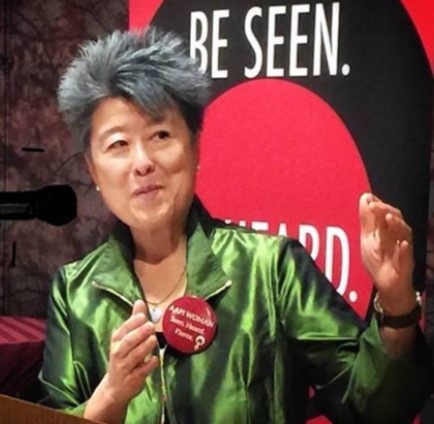
Helen Zia
Author, Activist, Journalist
Helen Zia is a tireless advocate for Asian Americans. She has been a key figure in Asian American activism since the murder of Vincent Chin in 1982, when Zia’s journalism and advocacy moved the Asian American community to demand justice for Chin. In addition, she played a crucial role in bringing federal civil rights charges against the perpetrators of Vincent Chin’s killing. Zia’s work inspired subsequent waves of Asian American advocacy and activism.
Zia has long spoken out on issues concerning Asian Americans, civil rights, women’s rights, hate violence, and homophobia. As a member of Princeton’s first coeducational class in the early 1970s, she was one of the founders of the Asian American Students Association. She was also a vocal antiwar activist during the Vietnam War, a firm believer in feminism, and active in movements creating cross racial unity among low income people of color. Zia’s groundbreaking work in journalism included an investigation of date rape at the University of Michigan, which led to campus demonstrations and an overhaul of the university’s policies. Zia traveled to Beijing in 1995 to the United Nations Fourth World Congress on Women as part of journalists of color delegation. In 1997, she testified before the U.S. Commission on Civil Rights on the racial impact of the news media. Between 1989 and 1992, Zia served as Executive Editor of Ms. Magazine. She is also the author of Asian American Dreams (2000) and Last Boat Out of Shanghai (2019). She was born in Newark, New Jersey, in 1952 to first generation immigrants from China.
In an interview with Facing History and Ourselves in May 2021, Zia shared her view that Asian Americans have long been an “existential threat to America,” evidenced by phenomena ranging from fears about Asians taking Americans’ jobs to racist theories of contagion that scapegoat Asian people for provoking illness around the world. Distilling her experience as a Chinese American person and how it shaped her career trajectory, she said, “Either you were invisible or you were not human…I wanted to tell the stories of all invisible people.” In her journalism, writing, and advocacy for many causes across many communities, Helen Zia provides Asian Americans with a remarkable voice.
